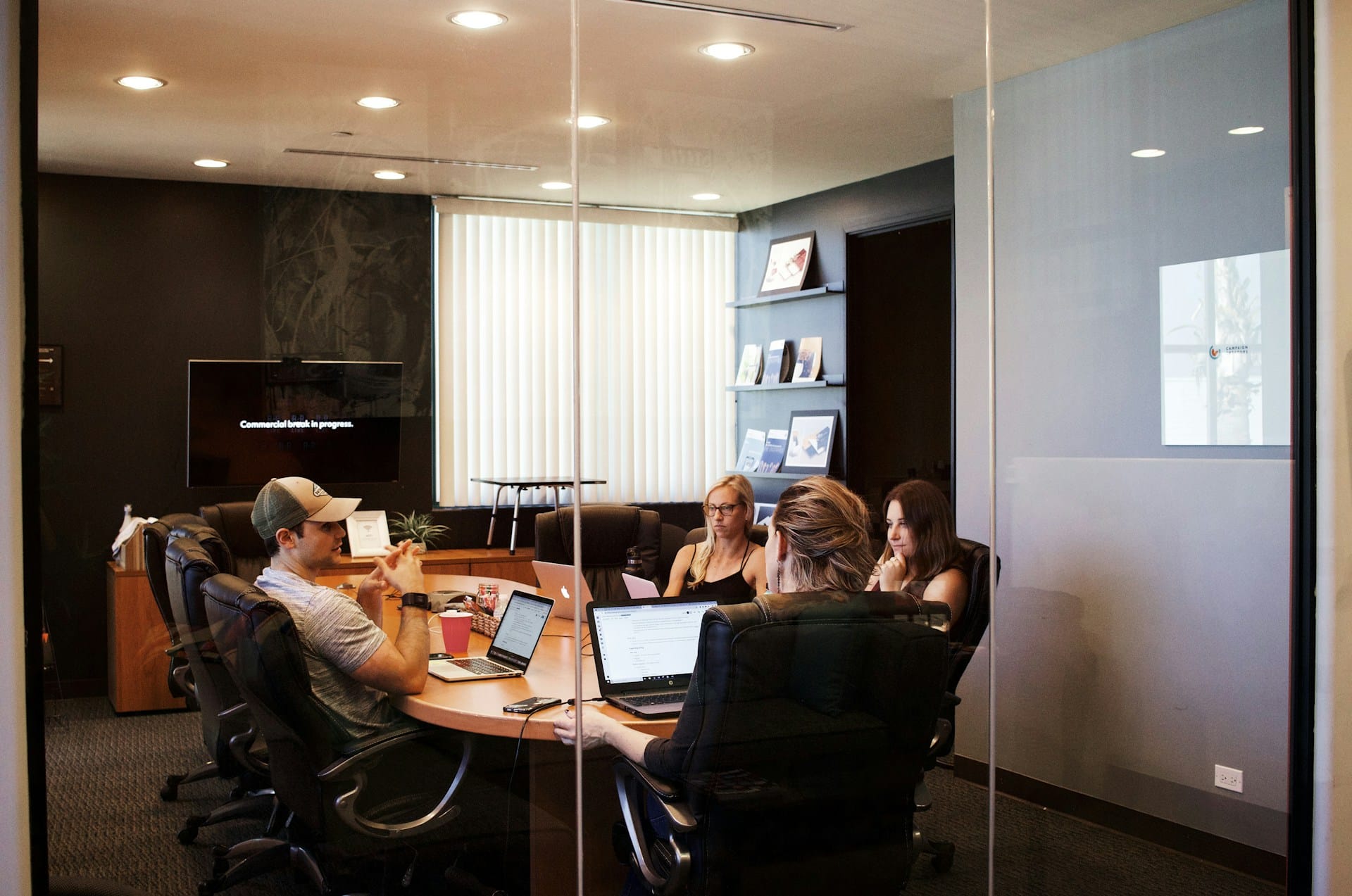What Specific Actions Can UK Businesses Take to Mitigate the Impact of Rising Steel Prices?

In the ever-evolving landscape of global trade and economics, steel has emerged as a crucial component. Steel is ubiquitous in our societies, serving as the backbone of infrastructure, manufacturing, and many other industries. However, the UK has recently been grappling with escalating steel prices. This surge has been propelled by numerous factors, including increased demand, energy costs, and the government's stringent emissions regulations. UK businesses are left grappling with this issue, probing strategies to mitigate the impact of rising steel prices. This report will delve into specific actions that UK businesses can undertake to navigate this challenging terrain.
Exploring Green Alternatives
One avenue that UK businesses can explore to counteract the impact of surging steel prices is the adoption of green alternatives. The escalating costs of steel are closely tied to the carbon-intensive process of steel production. The UK government, in its bid to reduce carbon emissions, has imposed heavy taxes on carbon, hence driving up the cost of steel.
Cela peut vous intéresser : How to Plan and Execute an Effective Rebranding Strategy in the UK Market?
Transitioning to green alternatives doesn't mean abandoning steel altogether. Rather, businesses could opt for steel products that are produced using green energy or those made from recycled steel. Such products typically have a lower carbon footprint and therefore are less impacted by the government's carbon tax. Furthermore, aligning business practices with sustainable methods can enhance the business's public image and attract support from environmentally conscious customers and investors.
Optimising Supply Chain Management
The steep rise in steel prices has not only been induced by internal factors such as carbon taxes, but also by external factors including fluctuating global markets and supply chain disruptions. Therefore, businesses must pay heed to their supply chain management.
A lire aussi : How to Mitigate Financial Risks in UK Property Investment?
Streamlining operations to optimise efficiency is a key step. This could involve employing digital tools to track and predict market trends, thereby enabling businesses to make informed purchasing decisions. In addition, forging strong relationships with reliable suppliers can ensure a smoother flow of goods and services, even in unpredictable market conditions.
Moreover, diversifying the supplier base can provide more flexibility and reliability. Businesses that solely rely on a single country or supplier for their steel needs are more vulnerable to disruptions. By establishing connections with multiple suppliers, businesses can distribute their risk and ensure a steady supply of steel.
Investing in Innovation and New Technologies
Innovation and technology have long been the drivers of business growth and resilience. In the face of rising steel prices, they can provide a lifeline for UK businesses. Companies can invest in innovations that decrease their dependence on steel, such as new materials or production methods.
For instance, businesses might adopt advanced manufacturing techniques like 3D printing, which can minimise material waste. Similarly, the use of predictive maintenance technology can extend the lifespan of steel components and machinery, thereby reducing the need for frequent replacements.
Furthermore, investing in research and development can lead to the discovery of alternative materials that can substitute steel in certain applications. While these alternatives might not entirely replace steel, they can certainly reduce the quantity of steel required, subsequently lowering the overall cost.
Lobbying for Government Support
While businesses can take various steps independently, they can also rally for government support to aid their cause. The government plays a crucial role in shaping the business environment, and its policies can significantly influence the cost of steel.
UK businesses can lobby for incentives such as tax benefits for companies that adopt green practices or use recycled steel. They can also push for subsidies or financial support for technological innovations. Collaborating with trade unions and industry associations can amplify their voice and increase the likelihood of the government hearing their pleas.
Moreover, businesses can advocate for the government to negotiate trade deals that facilitate the import of steel at a lower cost. Such deals could serve to buffer the impact of rising domestic steel prices, providing companies with a cost-effective alternative.
Increasing Product Efficiency
Efficiency is a powerful tool that UK businesses can wield to counteract the effect of rising steel prices. By increasing product efficiency, companies can reduce the amount of steel required in their products, thereby lowering production costs.
This can be achieved through product redesign, where products are innovatively designed to use less steel without compromising their quality or functionality. Businesses can also invest in technology that allows them to manufacture products with less steel or to get more utility from the steel they do use.
In addition, businesses can adopt lean manufacturing principles, aiming to eliminate waste and increase efficiency at every stage of the production process. This not only helps in saving steel but also improves overall productivity and profitability.
In the end, there's no one-size-fits-all solution to mitigate the impact of rising steel prices. Each business will need to evaluate its unique situation and adopt a combination of strategies that best suit their needs. Nevertheless, the options outlined above offer a solid starting point for UK businesses striving to navigate this challenging economic environment.
Incorporating Circular Economy Principles
UK businesses can mitigate the impact of rising steel prices by incorporating circular economy principles into their operations. A circular economy is a model that aims to keep resources in use for as long as possible, extract the maximum value from them whilst in use, and then recover and regenerate the materials at the end of each service life.
In terms of steel, this could mean shifting from a linear 'take-make-dispose' model to a circular model where steel is reused, recycled, and recovered in a continuous loop. This would not only save costs on raw materials but also align businesses with the European Commission's circular economy action plan and its broader green deal.
For instance, businesses can aim to maximise the life of steel products and components by focusing on maintenance, repair, and remanufacturing. They can also encourage the use of recycled steel in their supply chains and promote the recycling of their own steel waste. Commitment to a circular economy can also support businesses in making credible green claims, demonstrating their contribution to combating climate change.
Ensuring Compliance with Human Rights and Environment Standards
Another way UK businesses can navigate the terrain of escalating steel prices is by ensuring compliance with human rights and environmental standards. This is particularly crucial when sourcing critical minerals required for steel production from abroad.
Ensuring ethical sourcing and responsible supply chains can protect businesses from potential legal, reputational, and financial risks. It can also help them secure their access to critical minerals in the long term, as issues such as environmental damage, labour rights violations, and conflicts can disrupt supply chains and inflate prices.
Businesses can adopt due diligence practices as recommended by the Organisation for Economic Cooperation and Development (OECD) to identify, prevent, and mitigate potential risks. They can also consider joining initiatives such as the Responsible Minerals Initiative (RMI) to gain access to tools and resources that can aid in responsible sourcing.
Conclusion
The rising prices of steel present a significant challenge for UK businesses. However, through strategic measures such as exploring green alternatives, optimising supply chain management, investing in innovation and new technologies, lobbying for government support, increasing product efficiency, incorporating principles of a circular economy, and ensuring compliance with human rights and environmental standards, these challenges can be effectively mitigated.
It is, however, crucial for businesses to view these not merely as short-term solutions to an immediate problem. Instead, they should be seen as part of a broader shift towards sustainable and responsible business practices. By aligning with the global agenda to combat climate change, businesses can ensure their long-term viability and profitability.
In an era marked by rapid changes, the ability to adapt and innovate will be key. The UK businesses that can effectively navigate the landscape of rising steel prices will not only survive but also set the tone for a sustainable, resilient, and prosperous future.
